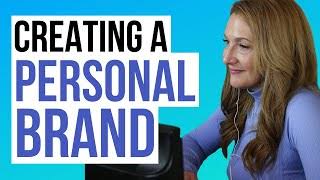Building a strong personal brand is no longer optional in today’s competitive professional world. Whether you are an entrepreneur, freelancer, corporate executive, or creative professional, your personal brand represents your reputation, credibility, and the value you bring to the table. Establishing and nurturing it effectively can open up more opportunities, help you stand out, and position you as an authority in your field.
Understanding the Concept of Personal Branding
Personal branding is the process of defining, developing, and promoting the image or identity you want people to associate with you. It is how you present yourself in both online and offline spaces, and it reflects your skills, values, expertise, and personality.
A strong personal brand creates trust, builds connections, and ensures that your name becomes associated with quality and reliability. With the growing use of social media and digital platforms, the ability to craft and control your narrative has become more critical than ever.
Defining Your Unique Value Proposition
Your unique value proposition (UVP) is the foundation of your personal brand. It communicates what sets you apart from others in your industry and why people should choose to work with or follow you.
To define your UVP effectively, you should:
- Identify your strengths and key skills
- Recognize your passions and professional goals
- Understand your target audience’s needs and challenges
- Pinpoint what makes your approach or expertise different from competitors
When your UVP is clear, it becomes easier to position yourself as the go-to expert in your niche.
Building a Strong Online Presence
In the digital era, your online presence often serves as the first impression people have of you. Maintaining consistent and professional profiles across various platforms can greatly enhance your personal brand.
Key strategies include:
- Creating a professional website or portfolio to showcase your work
- Keeping your LinkedIn profile updated with detailed achievements
- Sharing industry-relevant content on social media platforms
- Engaging with followers by responding to comments and questions
- Participating in online discussions and professional groups
By maintaining a consistent digital footprint, you create an image of reliability and expertise.
Crafting a Compelling Personal Narrative
Your personal story is a powerful tool in building your brand. People connect more deeply with stories than with statistics or achievements alone. Share experiences that shaped your professional journey, lessons learned from challenges, and successes that reflect your values.
This narrative should highlight not only what you do but also why you do it. A well-told personal story makes you relatable and memorable to your audience.
Networking with Purpose
Networking is one of the most effective ways to strengthen your personal brand. It allows you to create meaningful relationships with industry peers, potential clients, and mentors.
Effective networking involves:
- Attending industry conferences and events
- Joining professional associations and organizations
- Collaborating with other professionals on projects or content
- Offering help or advice without expecting immediate returns
The stronger your network, the more people will recognize and recommend your expertise.
Consistency Across All Channels
A personal brand thrives on consistency. From the tone of your social media posts to the quality of your work, maintaining uniformity builds trust over time. If your audience sees different versions of you in different settings, it can create confusion and weaken your brand identity.
This includes using similar professional photos, keeping your messaging aligned with your values, and ensuring your professional conduct matches your online persona.
Leveraging Content Creation
Content creation is a proven way to showcase expertise and engage an audience. Writing articles, producing videos, hosting podcasts, or sharing visual content can position you as a thought leader.
Types of content to consider:
- Educational guides or tutorials in your field
- Industry insights and trend analyses
- Personal experiences and lessons learned
- Case studies or success stories from your work
When you consistently share high-value content, you naturally attract more followers and opportunities.
Seeking Feedback and Continuous Improvement
A strong personal brand is not built overnight, and it requires regular refinement. Seeking feedback from trusted peers, mentors, or even clients can help you identify areas for improvement.
Be open to constructive criticism and adapt to changes in your industry. This flexibility demonstrates that you are committed to growth and staying relevant.
Authenticity as the Core of Your Brand
Above all, authenticity is what keeps your personal brand strong in the long run. People can easily sense when someone is pretending or exaggerating their expertise. Staying true to your values, beliefs, and genuine personality ensures that your brand is both sustainable and trustworthy.
A personal brand built on authenticity fosters long-term relationships and loyalty, which can lead to more consistent success.
Conclusion
Building a strong personal brand takes time, effort, and a clear strategy. By defining your unique value proposition, maintaining an engaging online presence, crafting a compelling narrative, networking effectively, and staying authentic, you can create a brand that reflects your true professional identity.
In a world where reputation and visibility play a crucial role in career success, your personal brand is one of your most valuable assets. Investing in it today can lead to lasting opportunities and recognition in the future.



